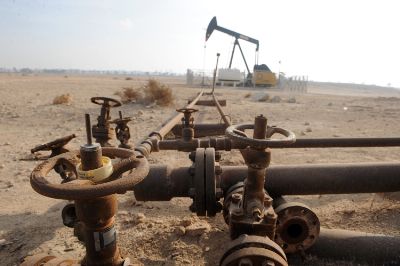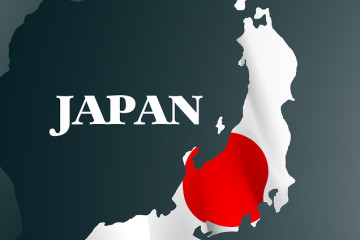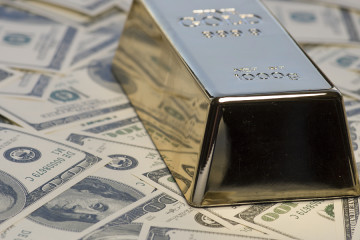Bloomberg Business: Globe’s Hot Spots Are Quickly Forgotten by Oil Traders: Energy

Copyright 2015 Bloomberg.
Ben Sharples and Sharon Cho
(Energy column news alerts: SALT NRGI <GO>)
(Bloomberg) — Back when oil traded at $115 a barrel in June, traders were talking about the fighting in places like Iraq, Ukraine and Libya as part of the reason it was so high.
Fast forward seven months and while crude has faded to $50 a barrel amid a supply glut, those geopolitical risks — along with some new ones that emerged — remain largely intact. Islamic State militants haven’t given up the goal of a Middle East caliphate, Libya is mired in chaos, pro-Russian separatists keep skirmishing with Ukrainian forces and North Korea is fighting Hollywood.
All of this has some analysts wondering if investors are setting themselves up for a nasty surprise by driving oil down so far. To Michael McCarthy, chief strategist at CMC Markets, current prices indicate investors see “almost zero risk” of a geopolitical event disrupting output. In other words, brace for a big jump if something does flare up in a key producing region.
“Depending on what hits the fan, we could get a sharp reaction,” McCarthy said in a telephone interview from Sydney. A “quick” increase of $20 or so would be possible, he said.
In some ways, the global landscape looks more menacing now than it did a year ago. Belgium was put on the second-highest threat level following anti-terrorist raids after suspected Islamist gunmen killed 17 people in and around Paris, including nine journalists at satirical magazine Charlie Hebdo. A November cyber-attack on Sony Pictures Entertainment Inc. escalated into a geopolitical incident when U.S. President Barack Obama blamed North Korea for orchestrating the hack and vowed to respond.
Rising Risk
The threat to financial markets from geopolitical instability is rising, according to the majority of respondents in a Bloomberg Global Poll. Fifty-two percent of the 481 Bloomberg subscribers surveyed said that these risks are increasing, up from 46 percent in November. Only 4 percent forecast a drop, according to the quarterly survey, which was conducted by Selzer & Co. of Des Moines, Iowa, from Jan. 14-15. The margin of error was 4.5 percentage points.
Of course, part of the reason that prices plunged last year was that the instability that did emerge across the globe didn’t wind up restricting supply. While Islamic State captured Iraq’s northern city of Mosul and advanced toward Baghdad, violence didn’t spread to the south, home to more than three-quarters of output from the second-largest producer in the Organization of Petroleum Exporting Countries.
Instead, a glut estimated by Kuwait at 1.8 million barrels a day has emerged as OPEC resisted cutting output and the U.S. pumped oil at the fastest rate in more than three decades.
Russian Bear
Brent slid 10 cents to $48.74 a barrel on the London-based ICE Futures Europe exchange at 10:42 a.m. Singapore time. West Texas Intermediate was at $47.45 a barrel.
“It will take a significant geopolitical event to cause a sharp gain,” said Victor Shum, a Singapore-based vice president at consulting company IHS Inc. “Pricing will still stay substantially below $100 in 2015 even though I think it’s likely to be higher than what we’re seeing now.”
Russia remains one of the key hot spots after the world’s biggest oil producer annexed Crimea from Ukraine last year, drawing sanctions from Western nations.
Relations between the West and Russia have deteriorated to the worst since the end of the Cold War as Putin signaled last month a sustained standoff over Ukraine. Blaming the U.S. and Europe for the economic crisis gripping his country, Putin likened Russia to a bear protecting its territory.
“As soon as they chain it, they’ll rip out its teeth and claws,” Putin said during a press conference on Dec. 19.
‘Difficult Year’
A Russian recession, territorial spats between China and its neighbors and the potential for Iraq to collapse into sectarian violence make for a “difficult year for business,” according to an annual outlook from Control Risks, a global risk advisory company based in London.
“Geopolitics hasn’t gone away,” said Richard Mallinson, an analyst at researcher Energy Aspects Ltd. in London. “We’ve got Islamic state in Iraq, we’ve got the Ukraine crisis and the sanctions on Russia, the extension of the Iran nuclear negotiations without a deal and Libya remains very chaotic.”
Islamic State remains active in Iraq despite air attacks after the beheadings of Western hostages. The group has earned income through illicit production and sale of oil.
Just the threat of a supply disruption can result in a price surge. Iran’s warning that it would close the Strait of Hormuz, a transit route for a fifth of the world’s crude, sent Brent 11 percent higher in February 2012. Speculation that Islamic State fighters would invade southern Iraq pushed oil to the biggest gain in 10 months in June.
Libyan Halt
For now, the glut remains at the forefront of market attention. Even as violence halted exports from two of Libya’s biggest oil ports last month, prices barely responded. The nation is the holder of Africa’s largest crude reserves.
Brent slumped 48 percent in London last year, while benchmark U.S. oil fell 46 percent in New York.
“If signals start to emerge of the tightening of the market in the second half of 2015 and once sentiment recognizes that, geopolitics might start to be more of a driver of price,” Mallinson of Energy Aspects said.
The cyber-attack on Sony Pictures exposed Hollywood secrets and upset plans for the studio’s release of “The Interview,” a comedy about a plot to kill North Korea’s leader. While it was linked by the FBI to hackers associated with the country, North Korea has said it doesn’t know the identity of the hackers.
In Africa, the southern rim of the Sahara may also produce a nasty surprise. After France rushed troops to Mali in January 2013 to repel an offensive by Islamic militias, many regrouped in Libya’s lawless Fezzan region. From there, they threaten the region and possibly Europe.
“There are all these little scenarios that could explode,” Jonathan Barratt, the chief investment officer at Ayers Alliance Securities in Sydney, said. “The market could easily put $10 to $15 on very quickly.”
–With assistance from Heesu Lee in Seoul.
To contact the reporters on this story: Ben Sharples in Melbourne at bsharples@bloomberg.net; Sharon Cho in Singapore at ccho28@bloomberg.net To contact the editors responsible for this story: Pratish Narayanan at pnarayanan9@bloomberg.net Aaron Clark







No Comment